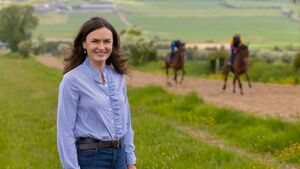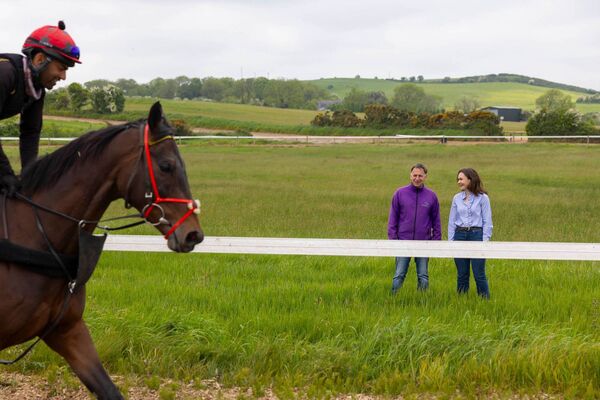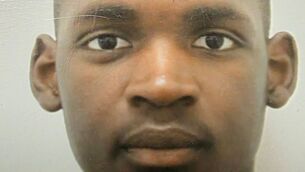SETU appoints Head of Department of Veterinary Medicine

Dr Mary-Kate Burke pictured at Henry de Bromhead Racing, Knockeen in Waterford. Picture Patrick Browne.
South East Technological University (SETU) has appointed Dr Mary-Kate Burke as Head of the Department of Veterinary Medicine, marking a milestone in the development of the University’s new veterinary medicine degree.
Dr Burke joined SETU as Programme Development Lead for Veterinary Medicine and has played a leading role in shaping the University’s new five-year Bachelor of Veterinary Medicine (MVB) degree, which is due to welcome its first students in September 2026.
A graduate of University College Dublin, Dr Burke brings extensive clinical and academic expertise to the position. Her career includes international equine practice as well as clinical academic posts at the University of Cambridge and the University of Surrey. She also holds a Masters in Medical Education and a Fellowship of Advanced HE (Higher Education Authority).
Speaking about her appointment, Dr Burke said, “I am honoured to lead the Department of Veterinary Medicine at this exciting time. Our new programme is designed around the realities of Irish veterinary practice, particularly the importance of mixed practice, while preparing graduates to meet the challenges of a rapidly evolving profession.” She added: “In Ireland, vets are at the heart of rural agricultural communities while also supporting growing small animal and equine populations. Mixed practice here is unique — one moment a vet may be vaccinating a cat, the next assisting with calving. Our curriculum is designed to reflect that adaptability and vocational nature of the profession.” The MVB will be delivered across three phases: foundation, clinical, and professional. In the final stage, students will complete workplace-based clinical rotations through SETU’s Veterinary Distributed Clinical Network. The large animal teaching element will be delivered in partnership with Teagasc Kildalton College in Piltown, Co Kilkenny.
Innovation will also be central to the programme. Students will use tools such as 3D printing models, ultrasound, and X-rays to teach underpinning sciences and to enhance clinical relevance and learning experience. Students will also gain exposure to real-world cases through clinical partners and guest lectures.
“Workplace and clinical relevance are key,” Dr Burke said.
“SETU has a strong reputation for producing work-ready graduates, always keeping industry needs at the forefront. The MVB builds on that strength.," she added.

Veterinary surgeons with a variety of clinical and academic specialisms, both nationally and internationally, have contributed to the curricular development process.
Support for the programme has been received from key industry stakeholders, including Henry de Bromhead, one of Ireland’s leading National Hunt trainers, TriviumVet, an innovative animal health company working on therapeutic solutions in the treatment of pet diseases, and Dawn Meats, one of the region’s largest employers of vets.
Dr Burke, who has experience in both traditional and distributed veterinary education models, is a strong advocate for the distributed approach: “I’ve seen the strengths of both models. The distributed clinical network is well suited to the veterinary industry today and offers a sustainable way of training vets for the future.”
Retention of veterinary practitioners remains a national concern, but Dr Burke believes SETU’s new programme will form part of the solution.
“By increasing capacity in Ireland and giving students the chance to study closer to home, we are strengthening the pipeline of future vets who can contribute back into their communities,” she said.
“The MVB is about more than educating future vets. It’s about building regional capacity, supporting rural communities, and ensuring the long-term strength of the profession in Ireland," Dr Burke added.






